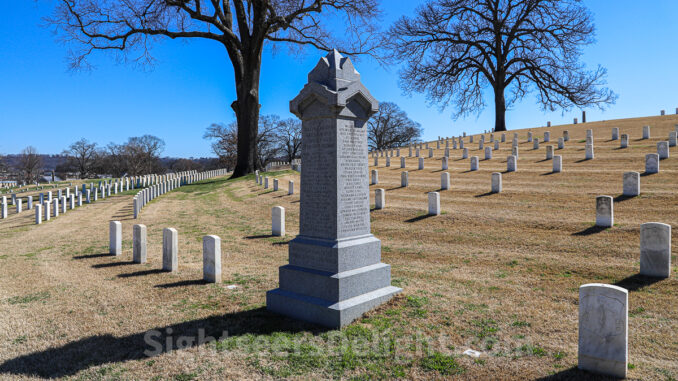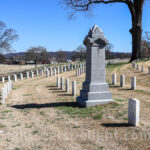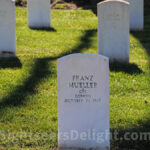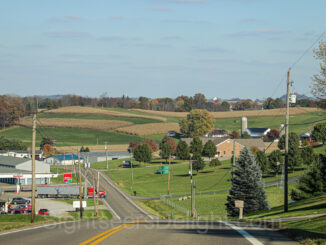
CHATTANOOGA, Tennessee — On a serene slope shaded by trees in the heart of Chattanooga National Cemetery stands a monument.
It wouldn’t seem out of the ordinary until a closer inspection yields some words in German. The reason for its existence is almost unbelievable, especially considering it is surrounded by American service members who fought on behalf of this country in wars over the past two centuries.
The monument honors 92 German soldiers who died on American soil as prisoners of war during World War I. Of the 92, 78 are buried in Chattanooga; another 108 prisoners of war taken during World War II from France, Germany, Italy and Poland are buried nearby.
“Died here during the war, far from home,” one inscription reads. “Germany will always remember you,” another more or less reads.
The history of the monument dates back nearly 100 years.
In February 1933, German prisoners who died during the flu outbreak in World War I in Hot Springs, North Carolina, were secretly interred at Chattanooga National Cemetery. T.S. McCallie, a Presbyterian pastor, “read a prayer service,” The Chattanooga Sunday Times reported at the time.
Later that month, The Chattanooga News reported the Davis King Summers Post of the American Legion planned to erect a monument. The newspaper reported that it would symbolize “the spirit of friendship” between Germany and the United States.
Adolf Hitler was named Germany’s chancellor on January 30, 1933, and whatever friendly spirit that existed between the United States and Germany would soon fade.
By early May, a nine-foot-tall monument constructed at the request of the German consul in St Louis was installed at the cemetery.
“The American Legion is willing to conduct the program provided it is confined to tribute to the German soldiers and sailors who lost their lives in the World War,” The Chattanooga Daily Times quoted F.T. Herron, the post’s commander as saying. “However, the Legion does not feel that the tribute should be connected with the present Hitler government. We have informed the German counsul that we would participate on that condition.”
The dedication was indefinitely postponed.
However, in March 1939, less than six months before Germany invaded Poland to start World War II, Baron von Spiesel, the German consul-general in New Orleans, and Herbert Diel, the German consul in St. Louis, traveled to Chattanooga. They dedicated the memorial during a ceremony seemingly void of pomp and circumstance.
Then, they headed to a local restaurant, Rathskeller, for dinner, which lasted from 1 p.m. to 4 p.m.
Diel told a reporter with The Chattanooga Daily Times that he “said a few words.” However, he denied being in town to organize a local unit of ex-pat Germans.
The two men left Chattanooga the following day. They left behind a surprising German connection in a sacred place.









